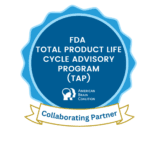Gene Therapy for the Cardiomyopathy of Friedreich’s Ataxia
The purpose of this study is to test the safety of the study drug, which is an adeno-associated virus serotype rh10 gene transfer vector (AAVrh.10hFXN), and see what effects it has to treat the cardiomyopathy associated with Friedreich’s ataxia (FA).The study drug, AAVrh.10hFXN, is a gene transfer vector which uses an adeno-associated virus serotype rh.10 as a vehicle to deliver the FXN gene into heart cells. It is hoped that the study drug will help produce the normal amount of frataxin, and thus return the function of your heart cells and limit the effects of the cardiac disease.
ClinicalTrials.gov Link: clinicaltrials.gov/ct2/show/NCT05302271
About the Study
Eligible Ataxia Types
Friedreich’s Ataxia
Type of Study
Interventional Trial
Clinical Trial Phase
Phase 1
Age Range
18+
Study Start Date
03/21/2022
Estimated Completion Date
12/31/2028
IRB Approval #
20-01021274
Location(s)
Weill Cornell Medicine/NHLBI
Department of Genetic Medicine
1305 York Ave, 13th Floor
New York, NY
Contact Information
Niamh Savage
nis2049@med.cornell.edu
646-962-5527
What does participation in the study entail?
You will be asked to come back to WCM at days 1-4, 7, 10, and 14 after the drug infusion; 1, 3, 6 and 12 months following the infusion. After you complete the 12-month on-site visit, you will have an additional assessment at WCM in year 2 at 3, 6, 9 and 12 months, and years 3-5 once yearly.
What are the potential benefits for participants?
It is hoped that the study drug will help produce the normal amount of frataxin, and thus return the function of your heart cells and limit the effects of the cardiac disease.
What are the potential risks for participants?
The risks will be discussed with you by the study physician.
Is there financial compensation?
No.
Is there travel reimbursement?
Yes. At cost.
Who is eligible?
Patients who have been diagnosed with Friedreich’s Ataxia.
Additional Information or Resources
View Other Research Opportunities
Spinocerebellar Ataxia Patient Feedback Survey
The survey aims to gather opinions about Antisense Oligonucleotide (ASO) therapy research, and the information gathered will be used to help develop future clinical studies for ataxia. Link to Enroll: Read More…
PATH
Proactive Approaches to Health for Asymptomatic Adults at Risk for Neurodegenerative Conditions The aim of this study is to assess the needs of asymptomatic adults at-risk to carry a pathogenic Read More…
Phase 3 Efficacy and Durability of Ampreloxetine for the Treatment of Symptomatic NOH in Participants with Multiple System Atrophy (CYPRESS)
This is a Phase 3, multi-center, randomized withdrawal study to evaluate the efficacy and durability of ampreloxetine in participants with MSA and symptomatic nOH after 20 weeks of treatment. This Read More…










